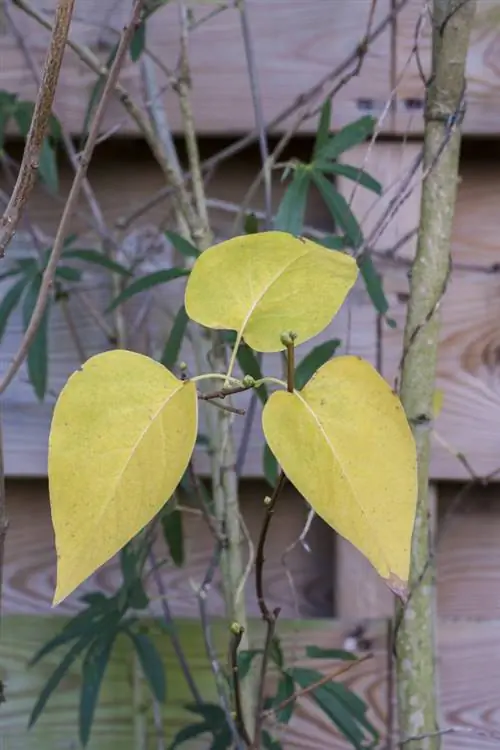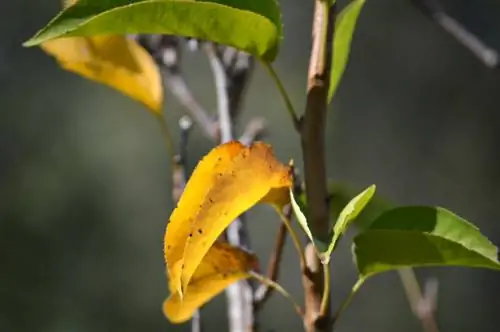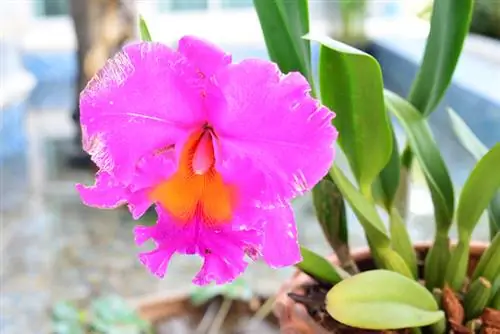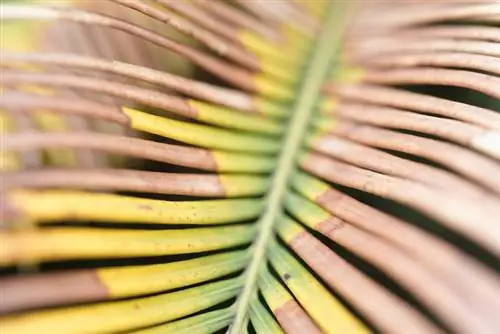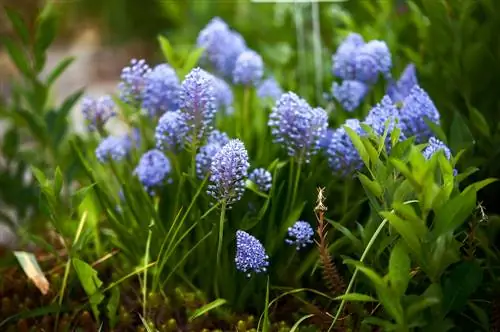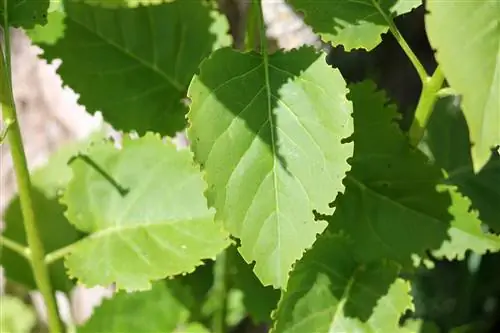- Author admin leonars@hobbygardeners.com.
- Public 2023-12-16 16:46.
- Last modified 2025-01-23 11:21.
Many garden owners have a magnificently blooming lilac in their garden, perhaps for decades, which blooms wonderfully every year and requires practically no care. Still others worry about an ailing plant that produces yellow leaves but hardly any flowers. There are various reasons for this behavior.
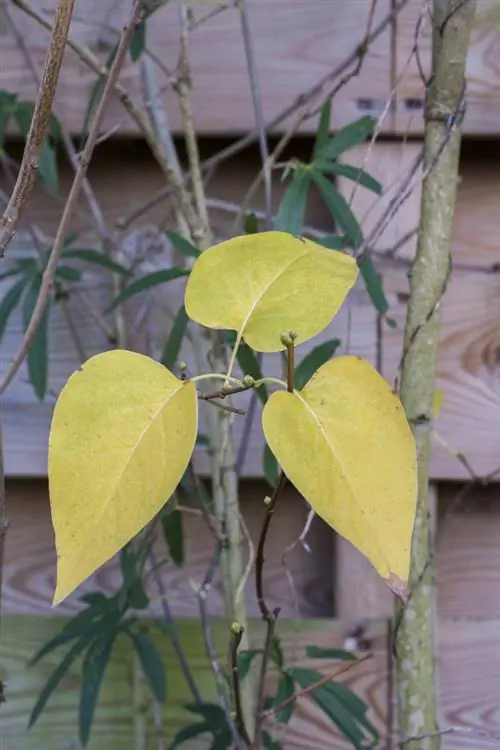
Why does my lilac have yellow leaves and what can I do about it?
Yellow leaves on lilacs can be caused by incorrect location, lack of nutrients or waterlogging. To solve the problem, the lilac should be transplanted, provided with iron fertilizer or provided with drainage.
Yellow leaves on lilacs: causes at a glance
Yellow leaves on lilacs do not have “the” cause; instead, there are a whole range of different reasons. The most important thing, however, is that you stay calm and first carry out thorough research into the cause - and only then act. Incorrect fertilization, for example, can destroy the already weakened plant, even though it would have had a good chance of a complete recovery.
Wrong location:
If the lilac is too dark, it often develops yellow leaves. A lack of flowers can also be an indication. In this case, only transplanting helps.
Nutrient Deficiency:
Lilacs in particular on nutrient-poor soils and with mulched/planted root disks quickly suffer from a lack of nutrients. If the leaves turn very light in color while the leaf veins remain dark, this is chlorosis. Then you have to help with an iron fertilizer (€6.00 on Amazon).
Waterlogging:
Lilac prefers rather dry soil; waterlogging can quickly become fatal. Relocate the shrub and prevent it with good drainage.
Tip
The “lilac disease”, a fungal disease, can also initially lead to yellow leaves.

